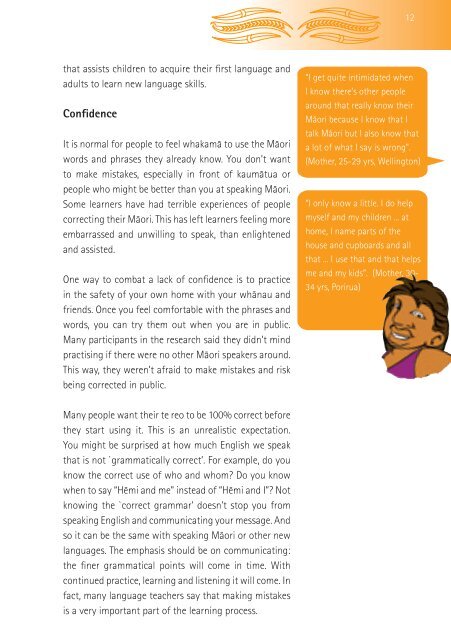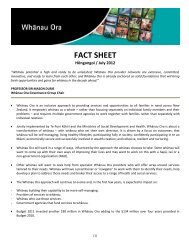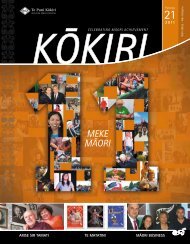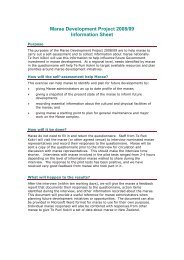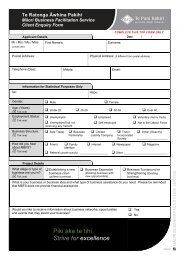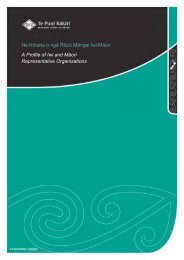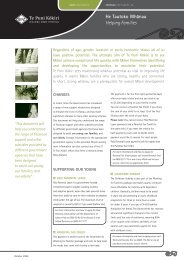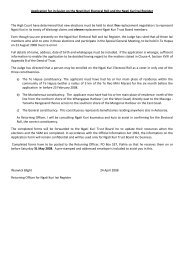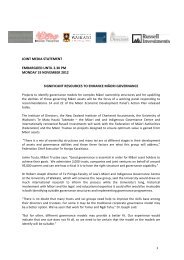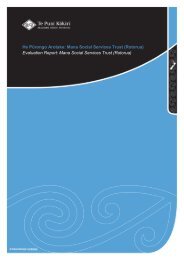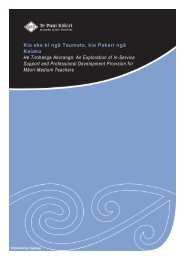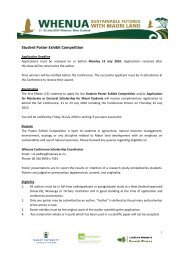Create successful ePaper yourself
Turn your PDF publications into a flip-book with our unique Google optimized e-Paper software.
12<br />
that assists children to acquire their first language and<br />
adults to learn new language skills.<br />
Confidence<br />
It is normal for people to feel whakamä to use the Mäori<br />
words and phrases they already know. You don’t want<br />
to make mistakes, especially in front of kaumätua or<br />
people who might be bet<strong>te</strong>r than you at speaking Mäori.<br />
Some learners have had <strong>te</strong>rrible experiences of people<br />
correcting their Mäori. This has left learners feeling more<br />
embarrassed and unwilling to speak, than enligh<strong>te</strong>ned<br />
and assis<strong>te</strong>d.<br />
One way to combat a lack of confidence is to practice<br />
in the safety of your own home with your whänau and<br />
friends. Once you feel comfortable with the phrases and<br />
words, you can try them out when you are in public.<br />
Many participants in the research said they didn’t mind<br />
practising if there were no other Mäori speakers around.<br />
This way, they weren’t afraid to make mistakes and risk<br />
being correc<strong>te</strong>d in public.<br />
“I get qui<strong>te</strong> intimida<strong>te</strong>d when<br />
I know there’s other people<br />
around that really know their<br />
Mäori because I know that I<br />
talk Mäori but I also know that<br />
a lot of what I say is wrong”.<br />
(Mother, 25-29 yrs, Wellington)<br />
“I only know a little. I do help<br />
myself and my children ... at<br />
home, I name parts of the<br />
house and cupboards and all<br />
that ... I use that and that helps<br />
me and my kids”. (Mother, 30-<br />
34 yrs, Porirua)<br />
Many people want their <strong>te</strong> reo to be 100% correct before<br />
they start using it. This is an unrealistic expectation.<br />
You might be surprised at how much English we speak<br />
that is not `grammatically correct’. For example, do you<br />
know the correct use of who and whom? Do you know<br />
when to say “Hëmi and me” ins<strong>te</strong>ad of “Hëmi and I”? Not<br />
knowing the `correct grammar’ doesn’t stop you from<br />
speaking English and communicating your message. And<br />
so it can be the same with speaking Mäori or other new<br />
languages. The emphasis should be on communicating:<br />
the finer grammatical points will come in time. With<br />
continued practice, learning and lis<strong>te</strong>ning it will come. In<br />
fact, many language <strong>te</strong>achers say that making mistakes<br />
is a very important part of the learning process.


